Jeff Bezos1 took to Twitter this week to take a victory lap over and old Barron’s cover story:
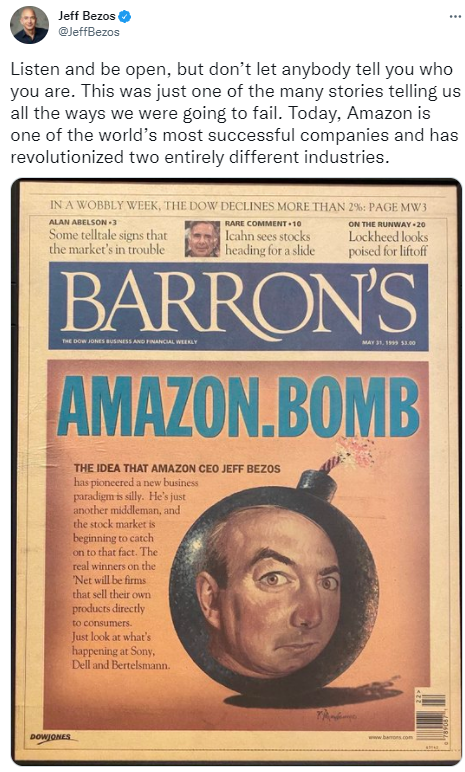
I’m sure this story didn’t go over well at Amazon’s headquarters when it came out so I’m sure he’s thought long and hard about how to dunk on this one over the years.
Well played.
This cover story ran on May 31, 1999 which was just before the tech bubble burst. Over the next 16 months or so Amazon’s stock was down more than 94%.
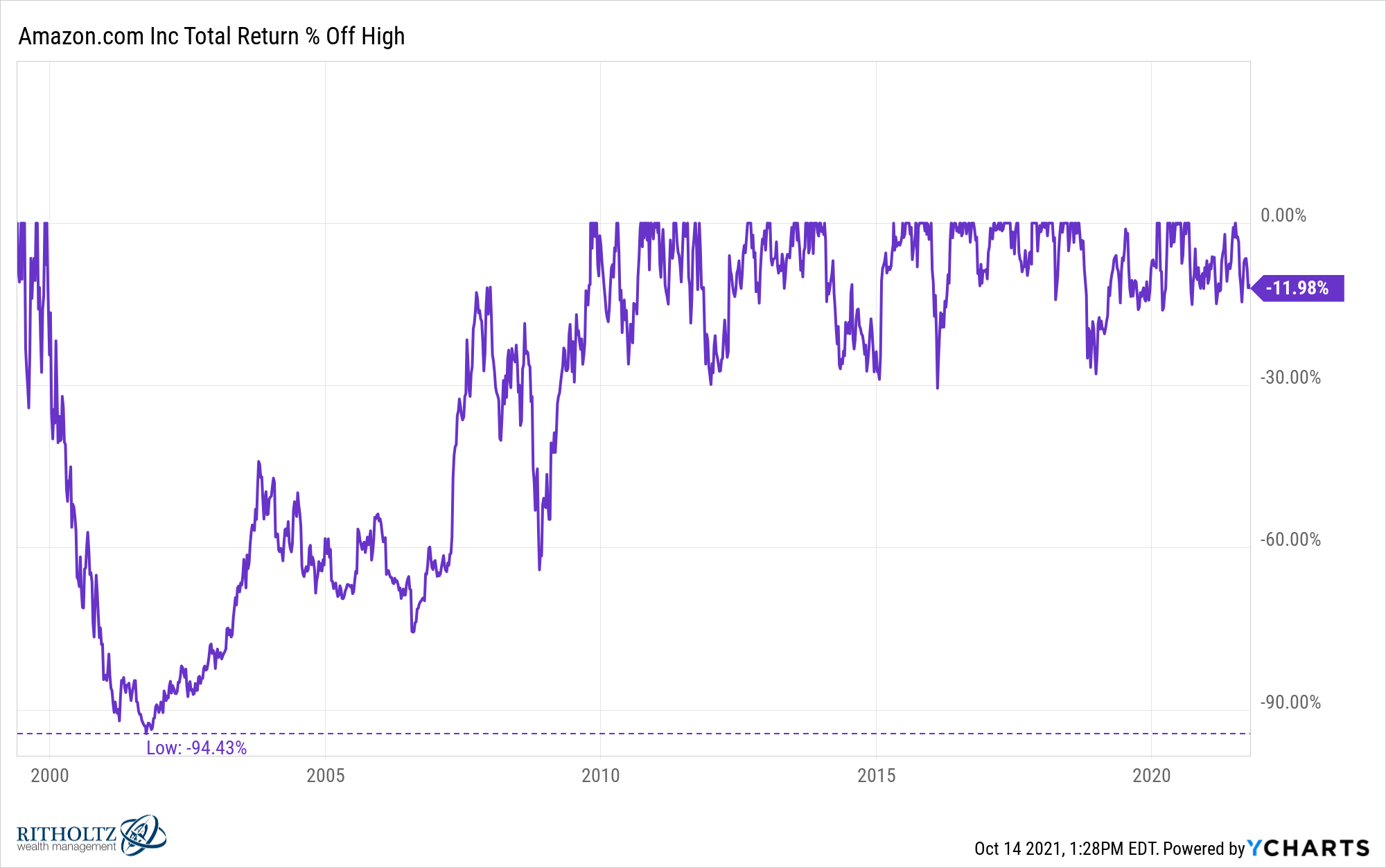
Bezos won over the long-term but Barron’s what kind of right over the short-term, right?
Two investors can have completely different opinions about a specific stock or the market and both can be right (or both can be wrong). It all depends on the time horizon.
This is why traders and investors may as well be living on different planets when it comes to the markets.
Take a look at the performance of various sectors and stocks over the past year:
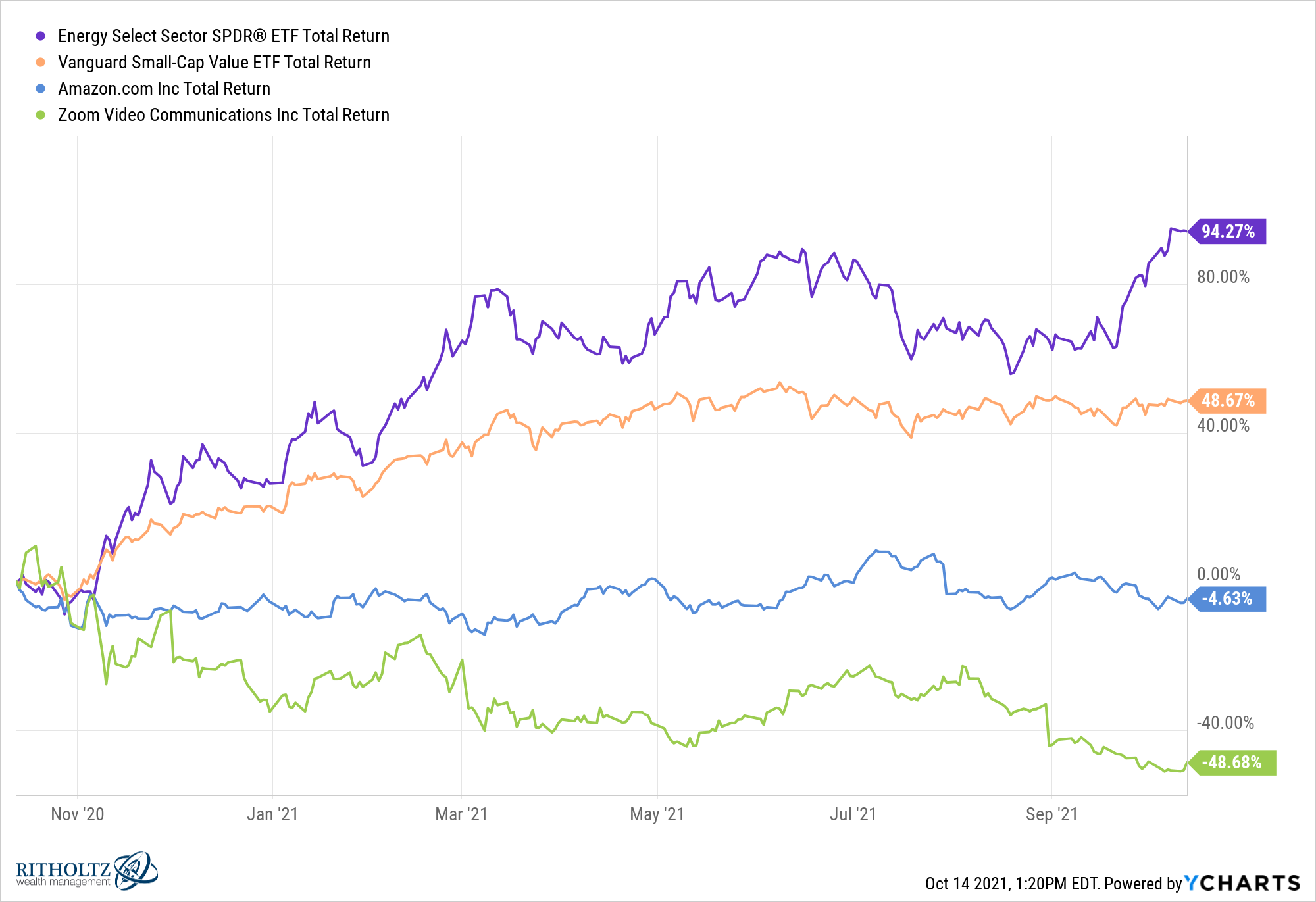
Energy is by far the best performing sector. Small cap value stocks are crushing it as well. Amazon is basically treading water over the past year. Zoom has gotten crushed despite now being a bigger part of most of our lives.
What if we zoom out (no pun intended) and go back a little further:
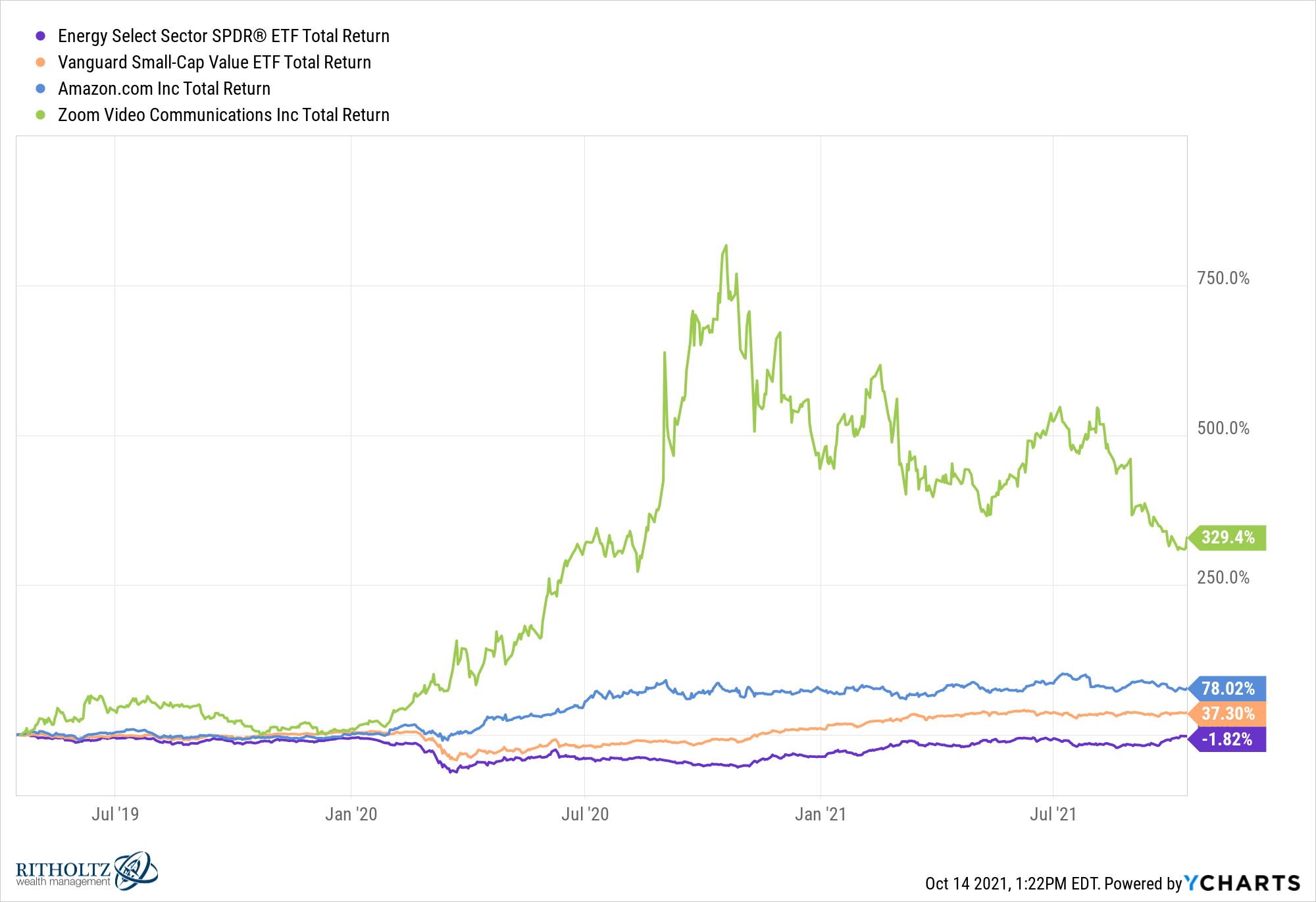
Since Zoom went public in the spring of 2019, the stock is still up huge. Amazon is up almost 80%. Despite rising nearly 100% over the past year, energy stocks are still down over the last few years.
Going long energy over the past year or so has been a wonderful trade. If you were in energy stocks before then, you got your shirt handed to you.
Zoom has been an awful trade over the past year but if you got into the stock at the onset of the pandemic you still made some good money.
Your view of any sector, factor or stock will have a lot to do with the time horizon in which you’ve been invested in it.
This is true of the stock market at large as well.
The shorter your time horizon, the higher the likelihood you will experience losses. And the longer your time horizon, the higher the likelihood you will experience gains.
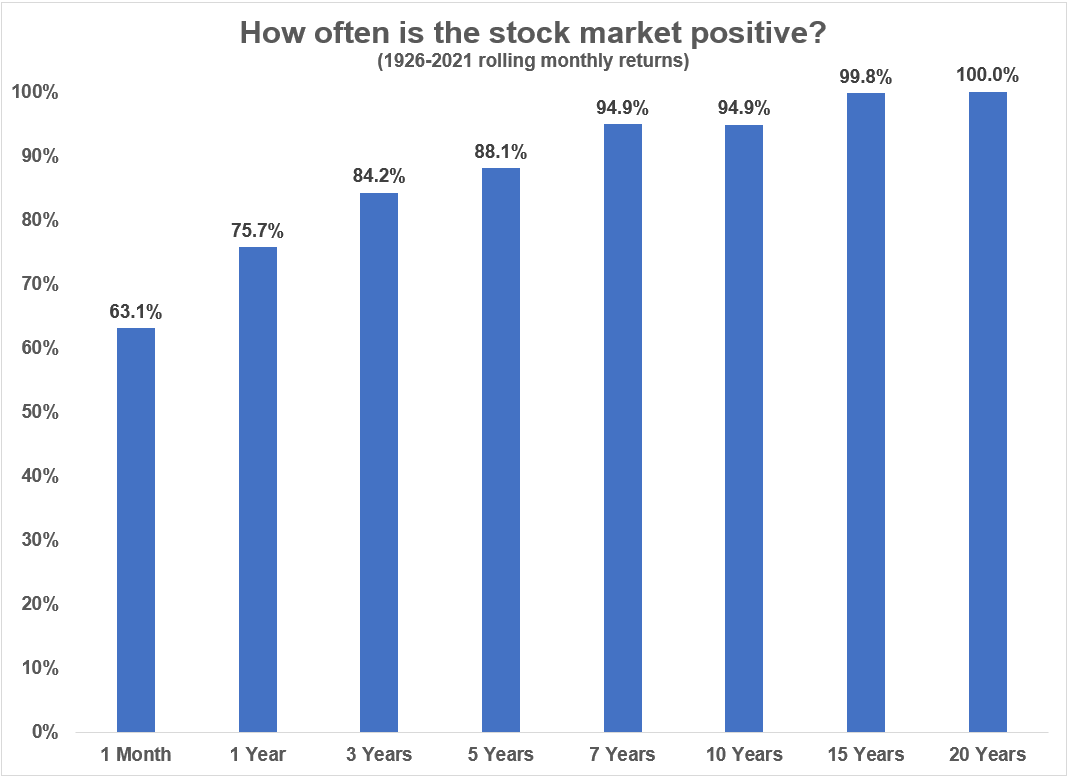
The U.S. stock market has never had negative returns over a 20-year window dating back to 1926. The only 15-year return that went negative was the year ending in 1944. This was a period bookended by the Great Depression and World War II.
That’s a pretty good track record.2
Of course, a high probability for success based on historical returns is no guarantee but what’s the alternative?
The hardest part of this equation is not the math but the emotions. It’s probably never been harder to have a long-term mindset when it comes to investing.
It’s easier than ever to trade from anywhere. There are fewer frictions to trade now that zero-dollar commissions are ubiquitous. And no one wants to wait around for the long-term anymore when so many people are getting rich in a hurry.
Having a long-term disposition will always give you an edge in the markets because it’s so difficult for others to think and act this way.
You just have to be willing to wait long enough for your time horizon to work in your favor.
Further Reading:
Stock Market Returns Are Anything But Average
1I can’t hear the name Jeff Bezos anymore without thinking of the Bo Burnham song.
2No, these numbers don’t include inflation or costs or taxes. Still impressive nonetheless.
